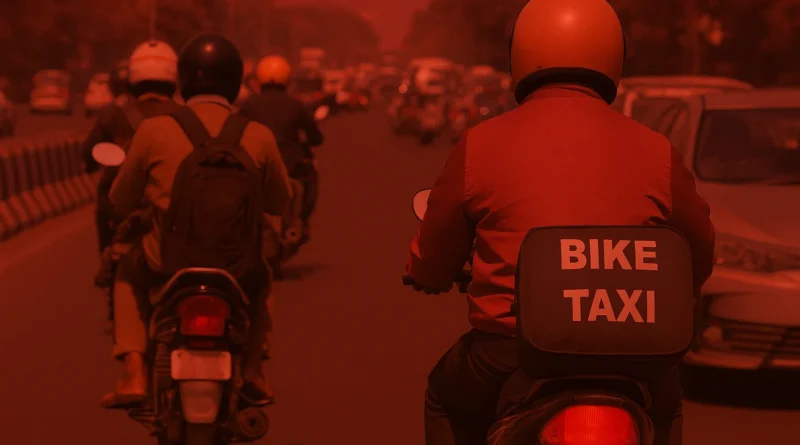Karnataka High Court Upholds Bike Taxi Ban, Sparking Outcry Among Riders and Commuters
BENGALURU, INDIA – In a significant blow to app-based mobility services and thousands of gig workers, the Karnataka High Court on Friday, June 13, 2025, refused to stay a state government order effectively banning bike taxi services across the state. This ruling means that popular platforms like Ola, Uber, and Rapido must cease their bike taxi operations in Karnataka starting Monday, June 16, triggering widespread disappointment and concern.
The Verdict and Its Rationale
The High Court’s decision came from a division bench comprising Acting Chief Justice Kameswar Rao and Justice Sreenivas Harish Kumar. The bench upheld an earlier single-judge ruling from April 2, which had directed bike taxi operators to suspend services within six weeks unless the state government notified relevant rules under the Motor Vehicles Act. While the deadline was initially extended until June 15, the court, in its latest hearing, noted that the state government had made a clear policy decision not to frame a regulatory framework for bike taxis.
“Had the state said it was in the process of framing rules and there was some delay, we could have considered staying the order,” the bench observed. However, with the state government explicitly stating its disinterest in creating a bike taxi policy, the court declined to grant interim relief, concluding that operating such services without a proper legal framework is illegal under existing motor vehicle regulations. The Transport Department has consistently maintained that private two-wheelers cannot be used for commercial purposes without specific government policy and permits.
Impact on Riders and Users
The ban is set to profoundly impact both the hundreds of thousands of gig workers who rely on bike taxis for their livelihood and the millions of commuters, particularly in traffic-choked Bengaluru, who depend on these services for affordable and efficient last-mile connectivity.
- For Riders (Drivers): Bike taxi aggregators, especially Rapido, had informed the court that the prohibition would affect over 600,000 riders across Karnataka. A significant portion of these riders (over 75% for Rapido) depend on the platforms as their primary source of income, earning an average of ₹35,000 per month. The Namma Bike Taxi Association, representing many drivers, has vehemently protested the ban, appealing to political leaders, including Rahul Gandhi, to intervene. They argue that for many, bike taxis are “not a side income, this is how we survive,” enabling them to pay rent, school fees, and medical bills. The sudden cessation of services leaves these workers in a precarious financial position.
- For Commuters: Bike taxis had become an indispensable mode of transport in cities like Bengaluru, offering a quicker and often cheaper alternative to auto-rickshaws or cabs for short to medium distances. They played a crucial role in bridging gaps in public transport, especially for reaching Metro stations or bus stops from residential areas, and provided much-needed flexibility with on-demand availability via apps. Commuters lament that the outright ban deprives them of an essential mobility option and will exacerbate the city’s notorious traffic woes. Initial reports on Monday morning indicated longer wait times for alternative transport options and increased reliance on carpooling services.
Industry Reaction and Future Steps
Leading ride-hailing firms like Rapido have expressed deep disappointment, with Rapido officially pausing its bike taxi services in Karnataka and replacing the option with a “bike parcel” service on its app. Uber and Ola, while some services were reportedly still operational on Monday morning, are expected to comply fully with the High Court’s directive.
The technology industry body Nasscom has also intervened, urging the Karnataka government to reconsider the decision and initiate a consultative and inclusive approach to policy development. They warn that the suspension could lead to large-scale disruption of livelihoods and hinder Karnataka’s prominence as a center for technology and innovation.
The court has issued notices to the state government and other respondents, with the matter scheduled for further hearing on June 24. This upcoming hearing will be crucial in determining if there will be any shift in Karnataka’s stance or if the ban on bike taxi services will continue to reshape the urban mobility landscape and gig economy in the state.

